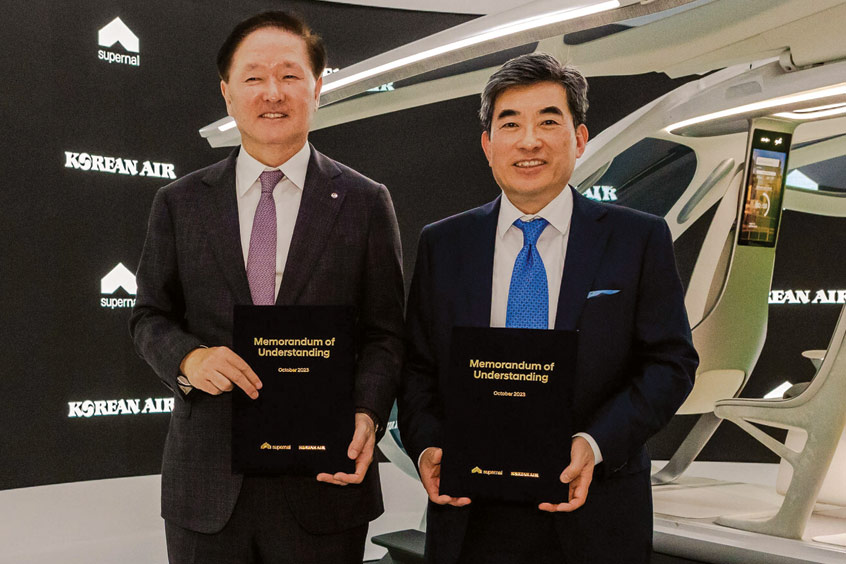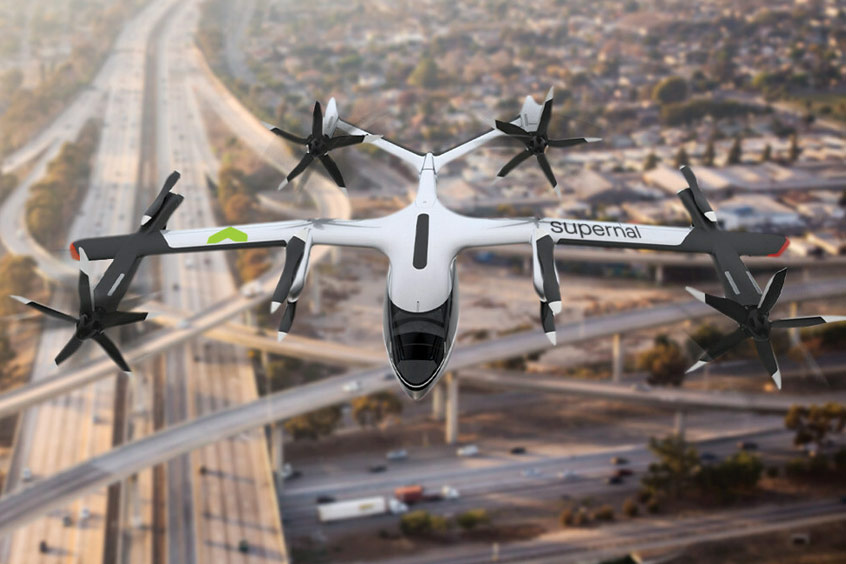Why visit ACE ’25?



Honeywell and Supernal are to develop a ground control station designed to enable pilotless advanced air mobility (AAM) operations. This will empower Supernal's flight test programme, allowing remote pilots to safely monitor and command aircraft while also accessing real-time aircraft data.
Honeywell's ground control station is a software solution that allows remote aircraft operations beyond visual line of sight, an essential feature to maximise development aircraft testing and enable the future AAM market. The company will customise a solution to serve Supernal's needs as it moves through the testing of its eVTOL vehicle; the ground control station technology could be scaled to manage hundreds or even thousands of vehicles across a series of stations.
"The collaboration with Honeywell brings unparalleled technological prowess to our flight test programme," says Supernal CCO Adam Slepian. "Its ground control station doesn't just meet our current needs but also offers scalable solutions for the future."
As part of Hyundai Motor Group, Supernal is working to collaborate with over 50 affiliate companies and external partners to develop its eVTOL vehicle for commercial use starting 2028. Supernal and Honeywell are committed to co-creating an AAM ecosystem to ensure the industry can scale in the coming decades, and ground control stations will be key to that ecosystem's success.
"The Honeywell ground control station features a certified, decentralised and redundant architecture that offers persistent connectivity for remote operations," says David Shilliday, vice president and general manager, AAM, Honeywell Aerospace. "This integrated solution ensures seamless and reliable command and control over remote vehicles."
The ground control station will seamlessly integrate with the onboard Honeywell Anthem Flight deck, which is already part of Supernal's vehicle systems. This integration will reduce both technical and schedule risks, allowing Supernal to concentrate on building the aircraft.
Supernal has agreed to work with Korean Air to help accelerate the design of its eVTOL vehicle and the development of the AAM ecosystem in Korea. The companies will engage in a variety of activities such as exchanging technical data and jointly participating in workshops and programmes to help develop an AAM ecosystem that will support safe eVTOL operations. As part of the agreement, Korean Air will provide insights about Korean-market requirements and AAM aircraft specifications, informing Supernal's product and market development strategies. The companies will also explore ways to effectively test the operation of Supernal's eVTOL vehicle and AAM infrastructure networks.
"A core part of our strategy to advance advanced air mobility is the need for robust collaboration and partnerships with industry leaders like Korean Air," says Jaiwon Shin, president of Hyundai Motor Group and CEO of Supernal. "Korean Air's expertise in building scalable aviation systems, together with Supernal's vision for mobility, will help usher in this exciting new era of air travel and bring us closer to global AAM operations."
The ways in which Korea plans to operate AAM in the country highlight the importance of this partnership. Unique to Korea, the Korean government plans to utilise 5G and LTE mobile communication capabilities to enable the seamless flow of information and communication by pilots. The Korean government also plans to create dedicated AAM operating corridors separate from helicopters and other low-level airspace users. These corridors will be customised for safe and efficient flight between vertiports, maximising the efficiency of AAM routes and minimising any interaction between eVTOL and other aircraft types.
As South Korea's largest airline, Korean Air has been a key player in developing the country's aviation industry and is expected to do the same for AAM, including by providing input to Supernal on passenger experience and operations.
"We will cooperate in deriving requirements for eVTOL aircraft optimised for UAM operations based on Korean Air's accumulated data on aircraft operation and customer boarding experience," says CEO Keehong Woo. "Based on this, we will strive to develop a business model and build an operating ecosystem suitable for Korea's environment."
Elements that Supernal plans to develop as part of a global AAM ecosystem include aftermarket products and services, interconnected mobility solutions, physical and digital infrastructure networks, and solutions for establishing and expanding an industry workforce.